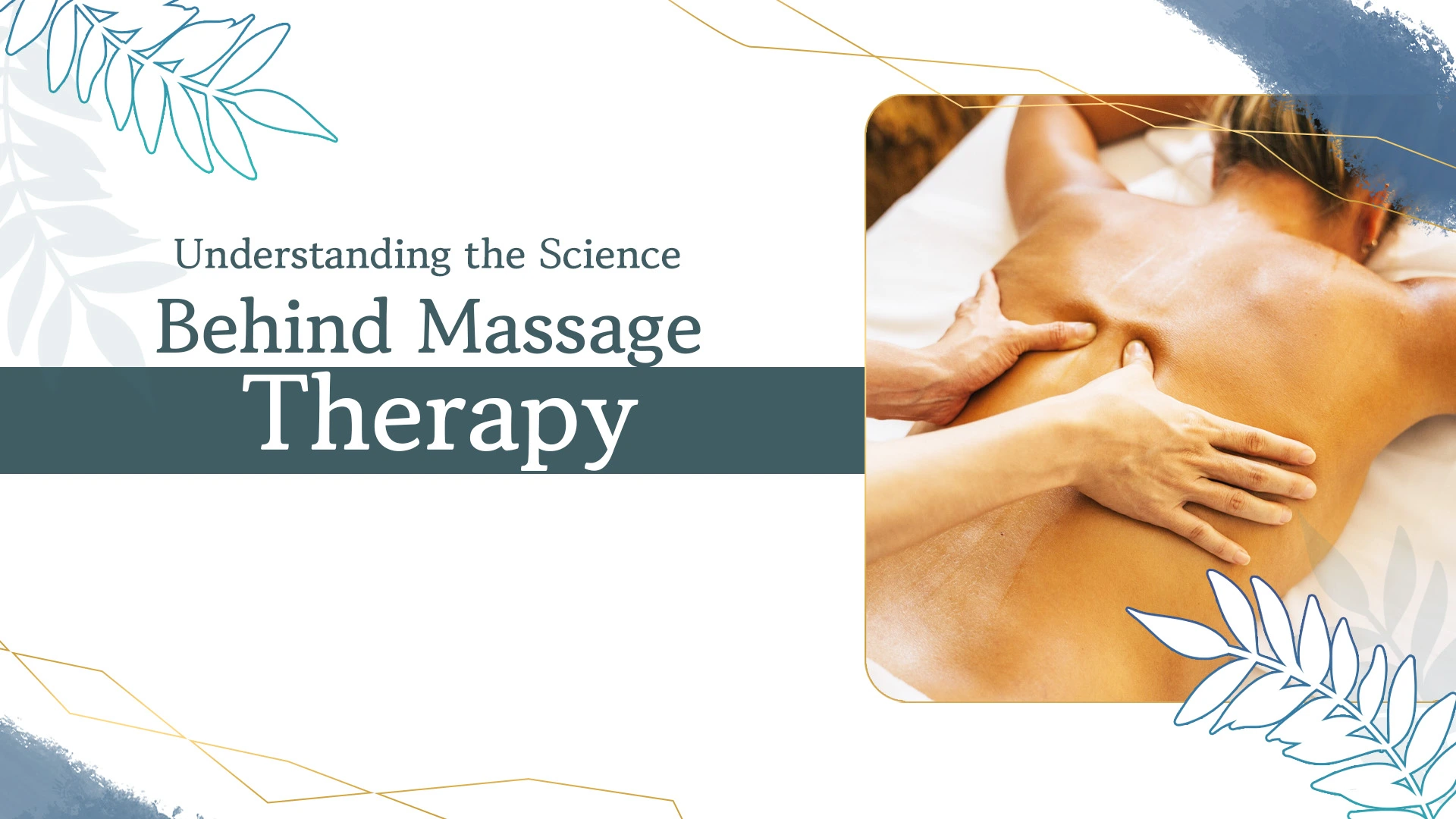
Massage is now seen as being the same as relaxation, stress reduction, and overall health. Nevertheless, below the enjoyable experience, an increasing amount of evidence is revealing its more profound therapeutic ramifications. As holistic health and wellness gain popularity, knowing the scientific principles of massage has become crucial. This blog will explore the key scientific principles behind massage therapy and what studies have discovered about its advantages.
What Occurs During a Massage Session?
Massage therapy is mainly considered as manipulating the body's soft tissues using methods like kneading, rubbing, & applying pressure. These would increase blood circulation, loosen muscles, and release tension. The effects seem to be short-term with mechanisms brought about by the body's physiological working.
Massage can stimulate sensory receptors in the skin, muscles, and connective-tissue when a pressure is applied to the body. These receptors send signals to the brain for interpretation to be carried out as physical sensations. Some of the signals may even reduce the perception of pain while others induce relaxation. In addition, massage improves circulation, allowing your body tissues to receive oxygen & nutrients to speed-up healing.
The Physiological Impact of Massage
Massage therapy has numerous effects on the body, most of which have been studied in research. Here are some key mechanisms:
- Release of Endorphin: Massage therapy can potentially raise the body's production of natural painkillers called endorphins. This helps improve overall mood and decrease discomfort, making it helpful for managing chronic pain.
- Reduces Muscle Tension: It is known to decrease muscle tension and increase flexibility. Massage treatment often manually stretches and manipulates muscle fibers in order to help relax contracted muscles and lessen the stiffness of muscles, which is quite helpful for people who suffer from muscle spasms or injuries.
- Improved Circulation: The pressure applied during a massage session helps improve blood-flow, which can enhance oxygen and nutrient delivery to vital tissues. This effect is particularly beneficial for those who are recovering from injuries or are dealing with conditions like poor circulation.
- Autonomic Nervous System Regulation: Massage had been determined to soothe the autonomic nervous system, which controls various involuntary body functions; for example, heart rate and digestion. There were studies that established that massage would help change the ANS from the "fight or flight" state to the "rest and digest" state, thus encouraging relaxation and reducing stress.
- Reduction in Inflammation: Many musculoskeletal disorders, including arthritis, have been linked to chronic inflammation. Massage has proven that it reduces the markers of inflammation in the body. The majority of swelling and discomfort from massage tend to be helped due to the encouragement of the removal of metabolic waste products and promoting blood flow.
The Science of Massage Therapy
In the past few years, massage studies have been advancing at an impressive pace, promising very likely therapeutic benefits for practice in many fields. It has been proved that massage therapy is an indispensable tool for relief from anxiety and depression, helping significantly in pain management related to back pain and in the recovery process after surgery. Not all studies are conclusive but taken together; they support the thought that massage serves as one of the stronger complementary treatments against a variety of afflictions.
Importantly, research also suggests that the benefits of massage extend beyond the immediate effects. Regular massage therapy can help with long-term muscle recovery, improve posture, & even boost immunity, making it a valuable addition to any wellness routine.
The Connection of Mind & Body
Probably the most compelling aspect of massage is its approach towards health in a holistic manner. Massaging both the body and the mind leads one to rejuvenation and great wellness, restoring balance to the body and the whole system. Massage further alleviates stress hormones like cortisol while encouraging serotonin and dopamine, neurotransmitters that enhance happiness and relaxation.
For individuals who have to deal with intense pressure or stress, massage is the alternative to old ways of managing stress. Massage therapy allows a body to disconnect from daily pressures and reconnect with its physical and emotional needs, thereby allowing it to enjoy a relaxing and therapeutic engagement.
Summary
The science of massage reveals an incredibly wide scope of benefits, including pain relief and muscle recovery, leading to stress reduction and improved circulation. The focus of the increasing research indicates that massage therapy is not a tool for just relaxation; rather, it's a powerful tool for supporting both physical and mental health. Whether it is pain from chronic conditions or merely a relief mechanism for everyday life, massage therapy can be quite useful as an integral part of wellness therapy, both based on ancient tradition and modern scientific research.


